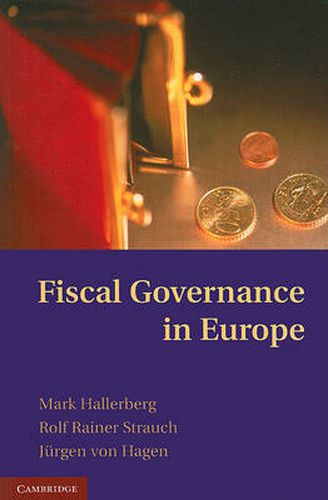Readings Newsletter
Become a Readings Member to make your shopping experience even easier.
Sign in or sign up for free!
You’re not far away from qualifying for FREE standard shipping within Australia
You’ve qualified for FREE standard shipping within Australia
The cart is loading…






This book presents a theoretical framework to discuss how governments coordinate budgeting decisions. There are two modes of fiscal governance conducive to greater fiscal discipline, a mode of delegation and a mode of contracts. These modes contrast with a fiefdom form of governance, in which the decision-making process is decentralized. An important insight is that the effectiveness of a given form of fiscal governance depends crucially upon the underlying political system. Delegation functions well when there are few, or no, ideological differences among government parties, whereas contracts are effective when there are many such differences. Empirically, delegation and contract states perform better than fiefdom states if they match the underlying political system. Additional chapters consider why countries have the fiscal institutions that they do, fiscal governance in Central and Eastern Europe, and the role of such institutions in the European Union.
$9.00 standard shipping within Australia
FREE standard shipping within Australia for orders over $100.00
Express & International shipping calculated at checkout
This book presents a theoretical framework to discuss how governments coordinate budgeting decisions. There are two modes of fiscal governance conducive to greater fiscal discipline, a mode of delegation and a mode of contracts. These modes contrast with a fiefdom form of governance, in which the decision-making process is decentralized. An important insight is that the effectiveness of a given form of fiscal governance depends crucially upon the underlying political system. Delegation functions well when there are few, or no, ideological differences among government parties, whereas contracts are effective when there are many such differences. Empirically, delegation and contract states perform better than fiefdom states if they match the underlying political system. Additional chapters consider why countries have the fiscal institutions that they do, fiscal governance in Central and Eastern Europe, and the role of such institutions in the European Union.